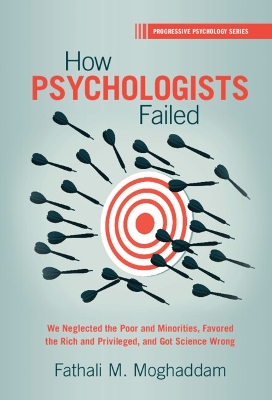Progressive Psychology
3 total works
Psychology is a discipline with global influence, but continues to neglect disadvantaged minorities and continues to adopt an incorrect model of science. This volume explains what has gone wrong, and what steps should be taken for psychology to become a constructive international force. Historically, psychologists have focused only on causal explanations of behavior, neglecting normatively regulated behavior and intentionality. By giving greater importance to context and collective processes, moving from 'societies to cells,' psychologists can better understand and explain individual behavior. Poverty is an extremely powerful context that shapes cognitions and actions, with destructive consequences for disadvantaged individuals. The advocation of 'be happy psychology' and 'resilience' as solutions to problems faced by the disadvantaged leads to entrenched group-based inequalities, with the poor stuck at the bottom. Moving forwards, this volume proposes that psychologists should focus on normative systems to ultimately foster a more balanced field of study for the future.
Political plasticity refers to limitations on how fast, how much, and in what ways political behavior does (or does not) change. In a number of important areas of behavior, such as leader-follower relations, ethnicity, religion, and the rich-poor divide, there has been long-term continuity of human behavior. These continuities are little impacted by factors assumed to bring about change such as electronic technologies, major wars, globalization, and revolutions. In addition to such areas of low political plasticity, areas of high political plasticity are considered. For example, women in education is discussed to illustrate how rapid societal change can be achieved. This book explains the psychological and social mechanisms that limit political plasticity, and shape the possibility of changes in both democratic and dictatorial countries. Students, teachers, and anyone interested in political behavior and social psychology will benefit from this volume.
Based on decades of psychological research and personal experience, Fathali M. Moghaddam presents a new and dynamic introduction to the psychology of revolution. He sets out to explain what does and does not change with revolution, using the concept of political plasticity or the malleability of political behavior. In turn, psychological theories of collective mobilization, the process of regime change, and explanations of what happens after regime change are discussed. This psychological analysis of the post-revolution period is pertinent because it explains why revolutions so often fail. General readers interested in learning more about the psychology of revolution, as well as students, researchers, and teachers in political psychology, political science, and collective action, will find this book accessible and beneficial.


